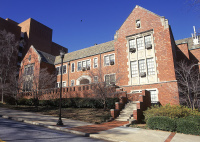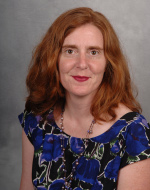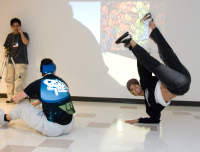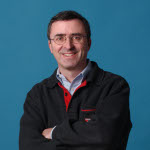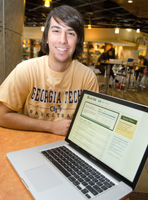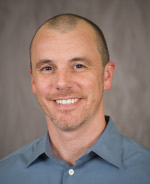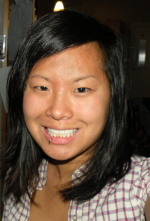Carnegie Honors INTA's Bowman as
Professor of the Year
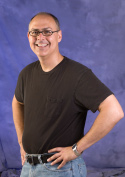
Associate Professor Kirk Bowman has been named the 2008 Georgia Professor of the Year by the Carnegie Foundation and the Council for Advancement and Support of Education (CASE). Bowman was among 46 state-level academics honored through the U.S. Professors of the Year Awards Program, which recognizes outstanding undergraduate instruction. As documented by the publicity in the Chronicle of Higher Education, AJC, and BoR website, this represents a very major award.
The Sam Nunn School of International Affairs at Georgia Tech is Bowman's first teaching position, and he credits the Institute for encouraging faculty to combine research and teaching and its commitment to study abroad. “The line between teaching and research is porous,” he said. “[This award] means that there is recognition for those who combine serious research and scholarship and an enjoyment of teaching. You really can do both.”
Instructor of 1000 to 6000 level courses, Bowman also directs the Institute's International House (I-House) ‘living-learning' community and the Study Abroad programs in Argentina, Brazil, Costa Rica, Cuba and Spain.
“The most impact I have on students is with Study Abroad. I've taken a group of 20 to 30 students every summer,” said Bowman. “It's the best way to have a holistic educational experience in the social sciences.”
Bowman received his master's degree from the University of Arizona and his doctorate in political science and comparative politics in Latin America from the University of North Carolina-Chapel Hill. His research centers on development and politics in Latin American and the Iberian Peninsula. He authored “Militarization, Development and Democracy: The Perils of Praetorianism in Latin America” and is currently finalizing research for his latest book, “Latin American Politics and the Political Economy of Soccer,” a work in concert with four other scholars. He also is working with biologists at Georgia Tech, Scripps and in Fiji on sustainable development and drug discovery.
Bowman was nominated for the Professors award by Georgia Tech's Office of the President under G. Wayne Clough. In 2007, Bowman was honored as the University System of Georgia Board of Regents Professor of the Year for research universities in Georgia.
“I really like the entrepreneurial side of Tech,” he said. “I like that it was easy to combine Study Abroad and research. There are fewer walls [at Tech] than in traditional academia, and more opportunities to collaborate here. The Institute just has a ‘problem-solving' attitude. And Georgia Tech's real strength is having students that are bright, gifted and involved enough to participate in research projects.”

